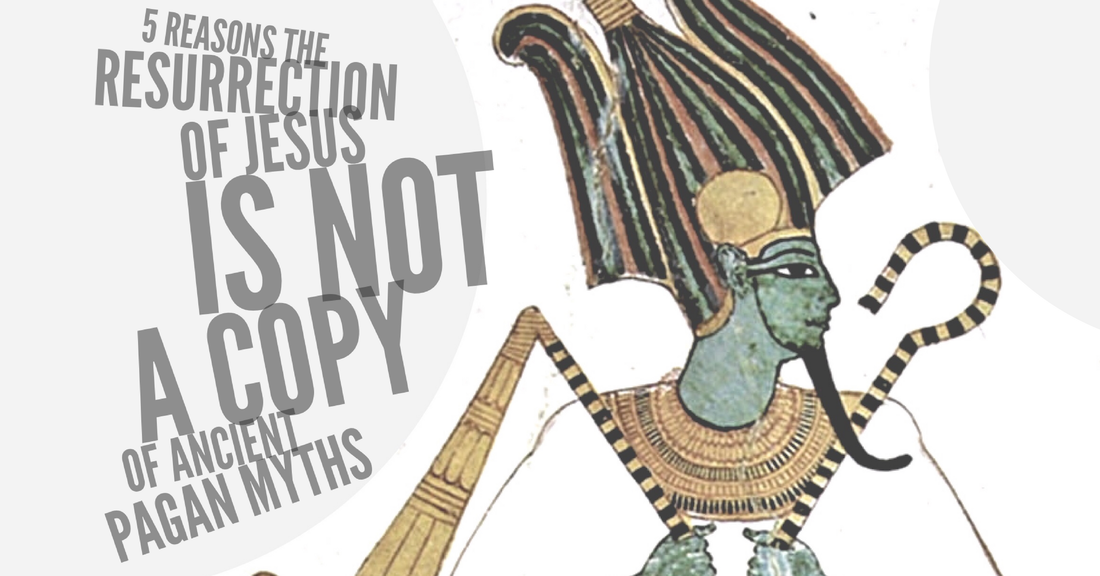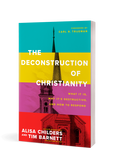|
We are coming up on a time of year when the resurrection of a virgin-born child whose followers called the "Good Shepherd" and "Messiah" is celebrated. He had twelve disciples, performed miracles, and sacrificed himself for the peace of the world. He was buried in a tomb only to rise from the dead three days later. His followers went on to celebrate his resurrection every year, and this celebration eventually became what we call "Easter." Think I'm talking about Jesus? Nope. I'm talking about Mithras. This is a common claim that is made by skeptics all over popular media, the internet, and even in some universities. The only problem—it's simply not true. According to Mithraic tradition, Mithras was born out of solid rock (I guess it counts if the rock was a virgin?) His birth was celebrated on December 25th, but Christians already knew that wasn't the real date of Christ's birth. There is no evidence that he had twelve disciples, sacrificed himself for world peace, or that he was called "Good Shepherd" or "Messiah." Many mythological characters were thought to be miracle workers (so maybe they can have that one), but there is no evidence he ever even died—which makes his "resurrection" a wee bit of a dilemma. Church Father Tertullian wrote about Mithraic believers acting out resurrection stories, but this was well after the time of the New Testament. So, if there are a couple of similarities between Jesus and Mithras, it could be that Mithraic believers copied the Christians....rather than the other way around. Mithras isn't the only pagan myth that Christians are accused of copying. Although most scholars are agreed that no such "dying and rising gods" existed before Christ,* here are 5 reasons the resurrection of Jesus could NOT be a copycat. (These 5 points are my summary of this 5 part video series by Dr. Michael Licona.) 1. Ancient myths about dying and rising gods were usually tied to agricultural cycles. When I was a little girl I remember asking someone why there are thunder and lightning. I was jokingly told thunder meant either that God was clapping his hands or maybe the angels were bowling in heaven. In the ancient world, people would describe things like the change of seasons, drought, and rain in a similar way...to their children. Imagine an ancient Egyptian little boy asking his mom why it hadn’t rained in a while. The mom might tell him the story of the storm god Ba’al who was swallowed by his brother Mot, the god of death and the underworld. When the mother of the two gods was able to convince Mot to let his brother go, it would rain again—thus explaining the cycle of rain. Unlike pagan myths, which were annual events going back to the distant past, the resurrection of Jesus was a one-time occurrence. It was reported as a recent event that happened within the lifetimes of the people who claimed to witness it—and it was not connected to agricultural cycles. 2. The earliest Christians were devout Jews who were highly sensitive to Jewish law and traditions. First century Christians were constantly debating things related to the law. Should Jewish men maintain the temple purification rites? Should Gentile men be circumcised? Should Christians eat meat sacrificed to idols? These are the types of problems they took very seriously and went to great lengths to solve. Bottom line—it's absurd to conclude that people who were pious Jews, debating things as particular as whether or not Jewish and Gentile believers should even eat together—would borrow from pagan myths to create their own. 3. Correlation doesn't equal causation. During the course of human history, similarities in stories and parallels in experience are not going to be hard to find. For example, we are all familiar with a plane that took off from Massachusetts one morning and flew into one of the tallest skyscrapers in New York City between the 78th and 80th floors, killing everyone on the plane. You are probably thinking of the horrifying terrorist attack of 911 that forever changed our country. However, I'm actually referring to the B-52 that flew into the Empire State Building in 1945. Although these two tragedies share some eerie similarities, there is no causal connection between them. Likewise, no causal connection has been shown between the resurrection of Jesus and pagan myths. 4. The comparisons are just not that impressive. Much like the Mithras example given above, most of the pagan parallels are not that persuasive, once we get past the rhetoric and actually examine the evidence. The most comparable pagan myth that preceded the life of Jesus might be the story of a demi-god named Asclepius. Even so, the only thing that is really similar is that he, like Jesus, was known to be a healer, and according to the myth, raised someone from the dead. Most of the pagan comparisons rely on taking bits and pieces from different ancient myths and figures that pre-dated Jesus and combine them with some real people who post-dated Him. The lengths one must go to in order to piece together a composite figure of Jesus is a bit of a stretch, and frankly, just not that impressive. 5. The abundance of myths doesn't cancel out the evidence for the real resurrection of Jesus. If you go to Barnes & Noble and take a look at the section for romance fiction, you will find cover after cover of helpless women trying to solve the biggest problem in their lives: which handsome and gallant hero will they choose? It's a tired formula that borders on the ridiculous—but just because tons of romance fiction is out there—it doesn't negate the idea that real romantic love exists. The truth is that there are so many silly romantic novels because romance seems to be an insatiable desire of the human condition. Life in the Roman Empire was brutal, with most people living in poverty, and given such a society, people were naturally looking for hope. They wanted to know that evil would be punished and goodness would be rewarded and that there would be life after death where justice would be done. Like the impetus behind modern romance fiction, this is a common desire of the human condition. We should expect that stories would emerge that would satisfy this hope for immortality. This doesn't mean that Jesus actually rising from the dead is fictitious or impossible. If we have good evidence for the resurrection of Jesus (which we do), there's no reason to reject it simply because there may be some similarities in fictional stories. This Easter, we don't celebrate Mithras or some other impotent figure of an ancient fairy tale. We celebrate the true and living Savior who conquered death and the grave to save us and reconcile us to God. I pray this post helps you confidently agree with the angel at Jesus' tomb by saying: He is risen! * Lund University Professor and Biblical Scholar T. N. D. Mettinger wrote, "The consensus among modern scholars—nearly universal—is that there were no dying and rising gods that preceded Christianity. They all post-dated the first century." (Cited in Lee Strobel, The Case for the Real Jesus (Grand Rapids, MI: Zondervan, 2007, 160-61.)
7 Comments
Audrey
3/26/2018 05:17:14 pm
Amen. Christ is risen. I love this post. Thank you so much for the work you are doing!
Reply
3/28/2018 09:35:16 pm
That's always the response--yeah, but look at how the Jesus story was *different* than those other guys.
Reply
3/29/2018 08:19:31 pm
Hey Bob, what's up.
Reply
3/30/2018 12:35:17 am
I’ve read (and written) much about the resurrection. Long story short, I find very little evidence for it. We can get into that if you want, or you can follow up by searching on my blog.
Reply
3/30/2018 03:32:28 pm
Hey Bob, I have been reading, researching, studying, teaching, and earning degrees in history and theology for almost 20 years and as part of that I've of course studied the evidence for the Resurrection a great deal as I have the information for all key points of Christianity and apologetics. Long story short, the evidence is there whether you choose to see it (you say find it, but I don't buy that) or not.
Reply
3/30/2018 11:41:21 pm
Dan:
Reply
3/31/2018 12:21:00 pm
No there is no piece of evidence that could ever cause me to reject Christ. That would be the equivalent of saying is there any piece of evidence that could ever cause you to reject one of your children. Jesus Christ has revealed Himself to me. He doesn't choose to reveal Himself to everyone and so I fully understand that to those He has not chosen to reveal Himself to (or has not chosen to reveal Himself yet) will never understand where we are coming from and I am in no way asking you to understand that.
Reply
Your comment will be posted after it is approved.
Leave a Reply. |



 RSS Feed
RSS Feed


